The Quirks of Japanese Appliances and Where to Get Them


Written by
Name: Stephanie
Country of origin: USA
How long you’ve lived in Japan: 6 years
Where you live in Japan: Tokyo (and 1 year in Gunma)
Instagram
Japanese Appliances
Appliances in Japan are much smaller than in the US (and probably a lot of other countries, too). Most standard sizes in the US are either considered big or unavailable in Japan! So, how can you get the appliance that’s right for your lifestyle and your new Japanese home? There’s also the question of where to get appliances, and whether to get them new or used.
With all these questions in mind, let’s dive into appliance shopping!
Refrigerators
Let me start off by saying, Japanese apartments do not come with refrigerators. A small-average fridge in the US is considered a large fridge for a Japanese home; of course you can get them easily, but they’re not the cheapest option. I got a half-size fridge with a tiny freezer on a whim (because it’s what my Japanese friends had) and in some ways I really regret it. I cannot meal-prep or stock up very well. But when I get to thinking, if I’d gotten a regular-sized fridge, it would be taller, so I wouldn’t know where to place my oven… Maybe there’s no right answer!
Ovens
Next up, ovens are, sadly, laughable in Japan. Japanese cuisine doesn’t require baking very often, so ovens are not standard in homes. If you need an oven, you have to buy one. Because Japanese kitchens are infamously tiny, ovens are very small, about the size of a microwave. Which, funnily enough, they are microwaves! In Japan, you can find microwave ovens that function solely as microwaves, or ones with various functions, such as oven and toaster oven. One thing to watch out for is the standard microwave+oven model will only heat up to 200C (392F), so if you need a high temperature for baking things like bread or pizza, you’ll have to check the model specifications. High temperature ovens are expensive since most people don’t use them, so I got mine at a secondhand store.
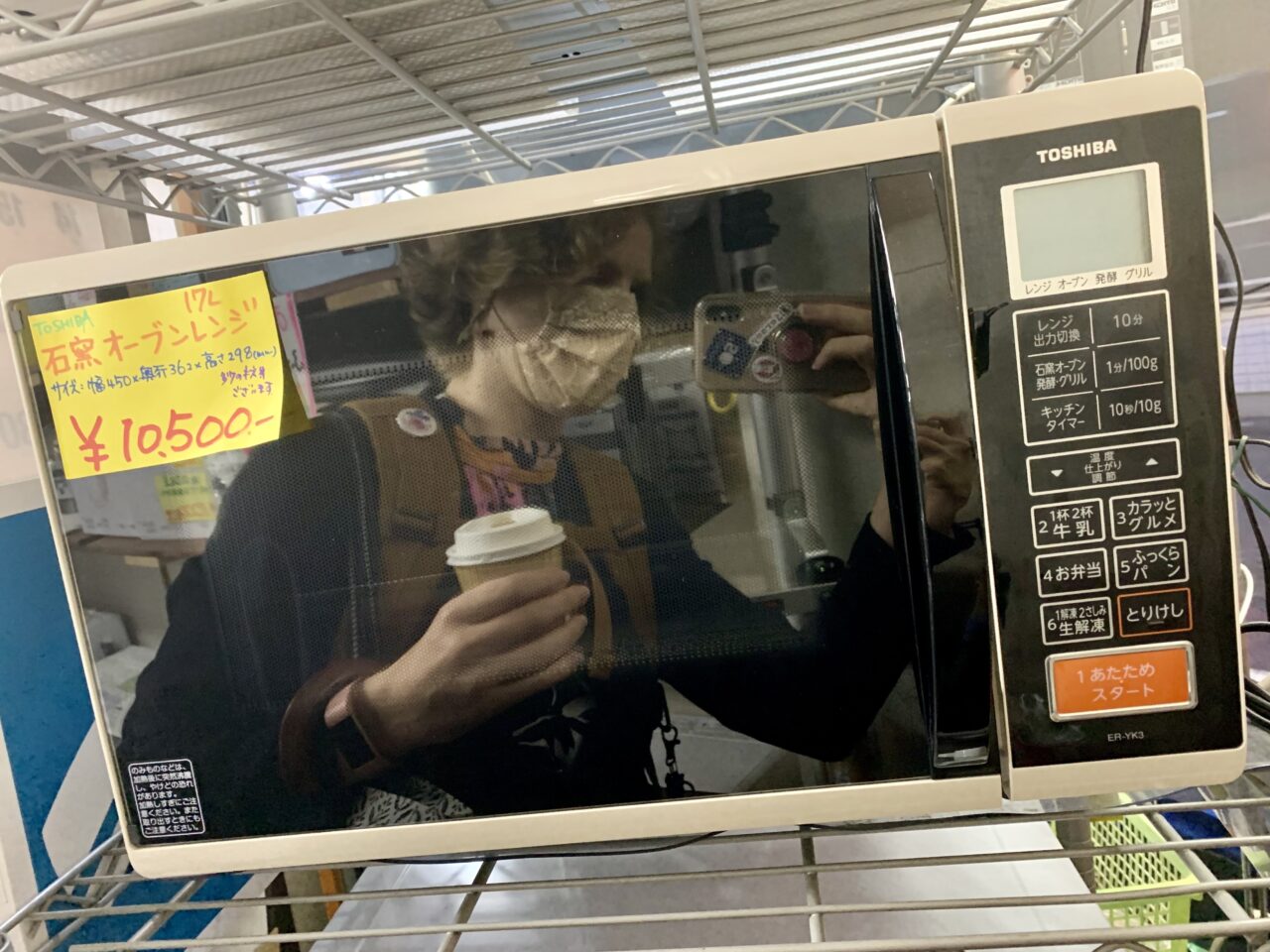
Washing Machines
Unlike US apartments, washing machines are standard in Japanese apartments… well, sort of. The *space* for a washing machine is standard, but you have to buy the machine itself (unless you want to use a laundromat).
Similar to the other appliances, washing machines are much smaller than the standard US size, so if you like to pile your laundry for weeks, you might have a tough time. One nice thing is if you want a drier, there are several dual-function washer+dryer units available.
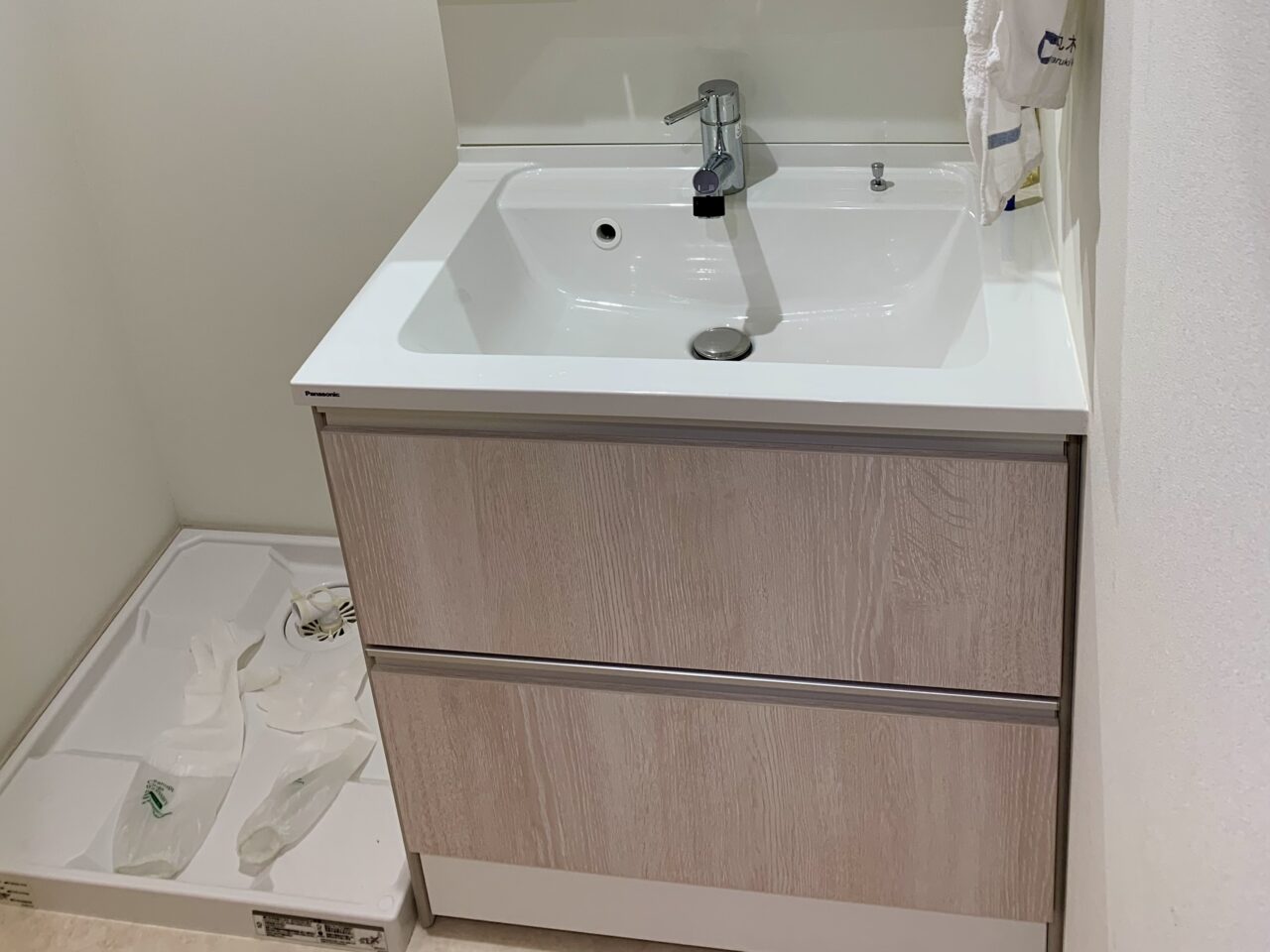
Lights
Yup, you read that right! Some apartments don’t come with any light, despite there being a fixture in the ceiling. Some of my friends’ apartments had a light, but I had to buy one for my living/bedroom when I moved in.
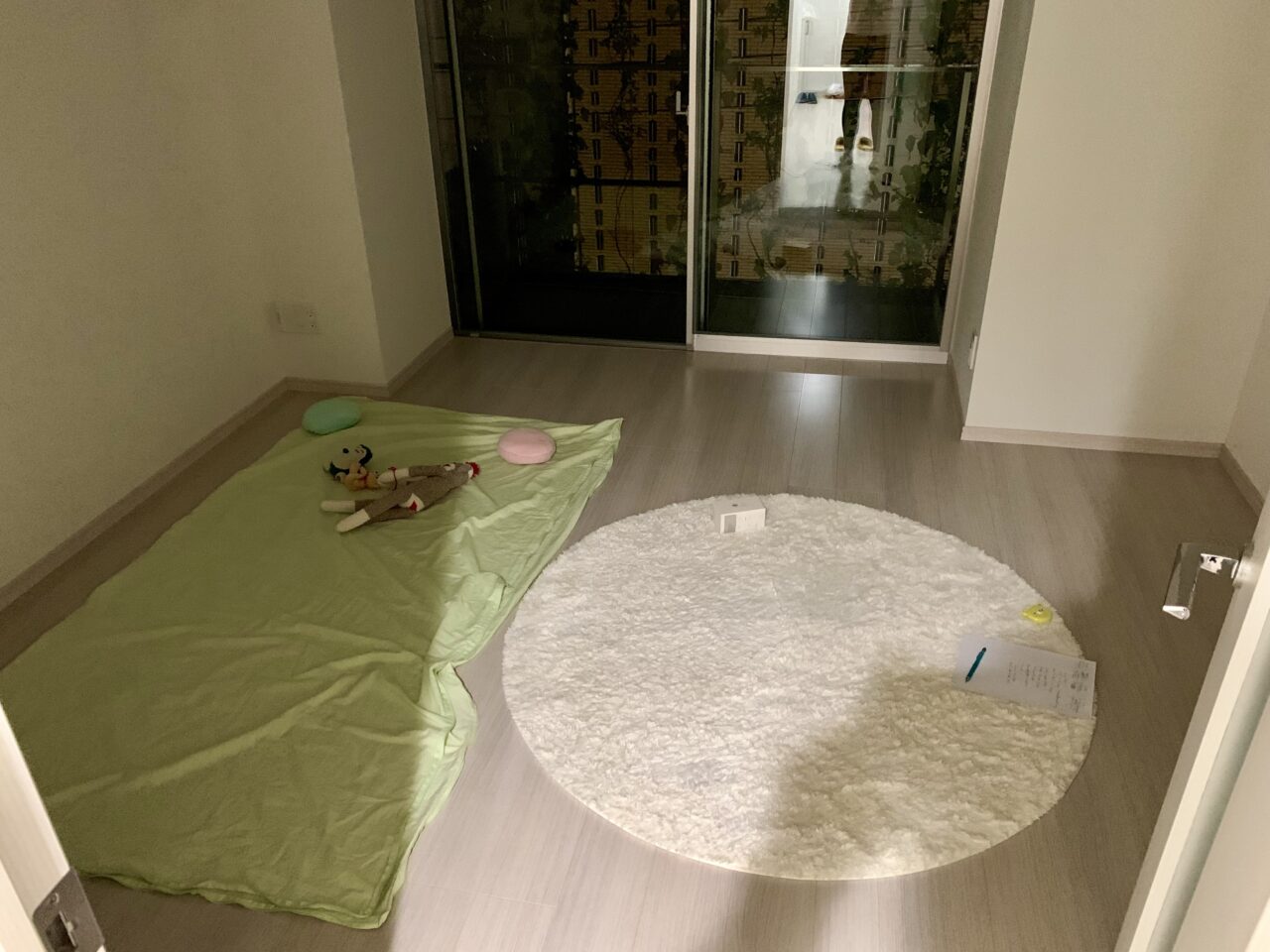
Should You Buy New or Used?
Similar to the previous article I wrote about furniture, I’ll recommend that you try and get at least some appliances used, especially if you’re going to stay in Japan for less than two years. Appliance resale value is extremely low, and it will cost a fair amount of money to throw them out, so if you have the mindset that you’ll make some of your money back upon moving, I’d suggest abandoning that train of thought and jump on the used or cheap appliance bandwagon.
That said, if you don’t need anything too fancy, you can get affordable new appliances as well.
Where to Buy Used Appliances and Furniture
- Craigslist– Craigstlist does exist in Japan, but it’s not used very much.
- Facebook Groups and Facebook Marketplace– Perhaps the easiest online option for those who can’t read Japanese. There are various Facebook groups for selling or giving away unwanted items in different Japanese regions, so give Facebook a search once you know what city you’re moving to.
- Secondhand Shops– Whether it’s a franchise secondhand shop (such as Hard-Off and House-Off) or a local mom and pop secondhand shop, sometimes you can snag a good deal here. I got my high-temperature oven and an extendable dining table and chair set at a local secondhand shop for a reasonable price, and I was able to schedule a delivery from them as well!
- Japanese-Only Apps/Websites– There are a few websites or apps you may come across that can be useful for buying used items, but because they operate solely in Japanese, they’re probably not a great option for those who can’t read and type in Japanese. Jimoty operates similarly to Craigslist, and Mercari is an auction site.
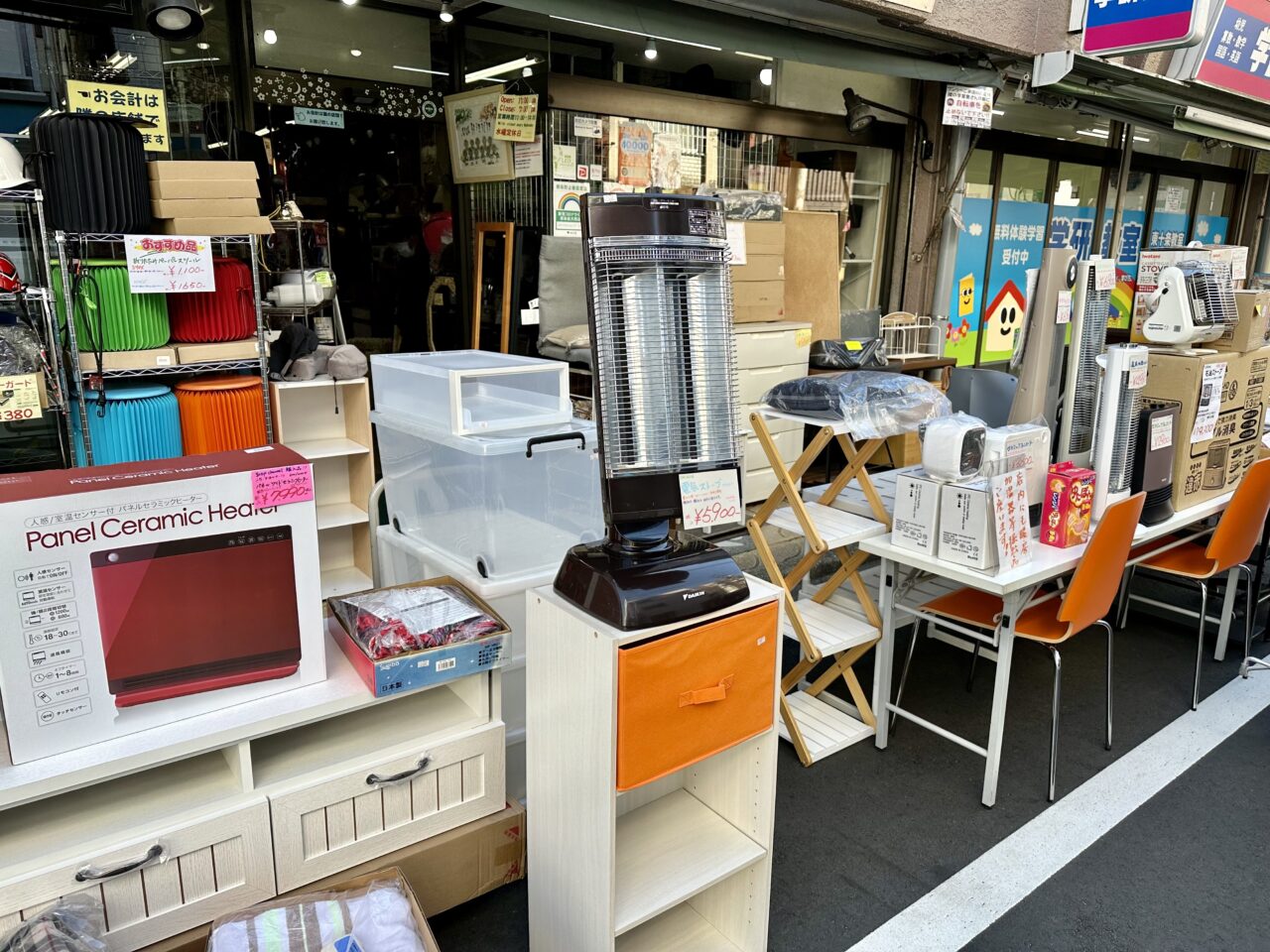
Where to Buy New Appliances
Brick and Mortar Stores
There are plenty of in-person shopping options for appliances in Japan. Many electronics shops have home electronics sections, such as Bic Camera and Yamada Denki. There is also the option of home goods stores, such as IKEA, Nitori (a Japanese store similar to IKEA), and Cainz (which I found similar to the US’s Target, minus the grocery and clothing sections).
Online Shopping
There are a number of options for online appliance shopping as well.
- Amazon– We all know the online shopping giant Amazon, but did you know that Amazon has a separate Japan store? If you want to use Amazon in Japan, you should make an Amazon Japan account once you’re settled in. You can get local products, save on shipping because it won’t be international, and sign up for Japanese Amazon Prime. The website even has an English interface!
- Rakuten Ichiba– Rakuten Ichiba is a useful online shopping alternative to Amazon. Rakuten is known for its general affordability and variety. Because most sellers are based in Japan, it’s a great online place to get products that fit Japanese homes well. I got my washing machine and refrigerator from Rakuten! Some sellers even offer old-item pickup when you purchase something.
Actually, Rakuten Group has a whole bunch of different branches, such as travel booking and mobile phone service, and their credit cards are fairly easy for foreigners to get, so before you know it, you might get sucked into the Rakuten point universe!
The Rakuten Ichiba website is only in Japanese, but there is an English shopping guide at the bottom of the page, so using that along with your web browser’s translate function might do the trick. Interestingly enough, a lot of support emails I’ve gotten from Rakuten’s various services are in Japanese and English.
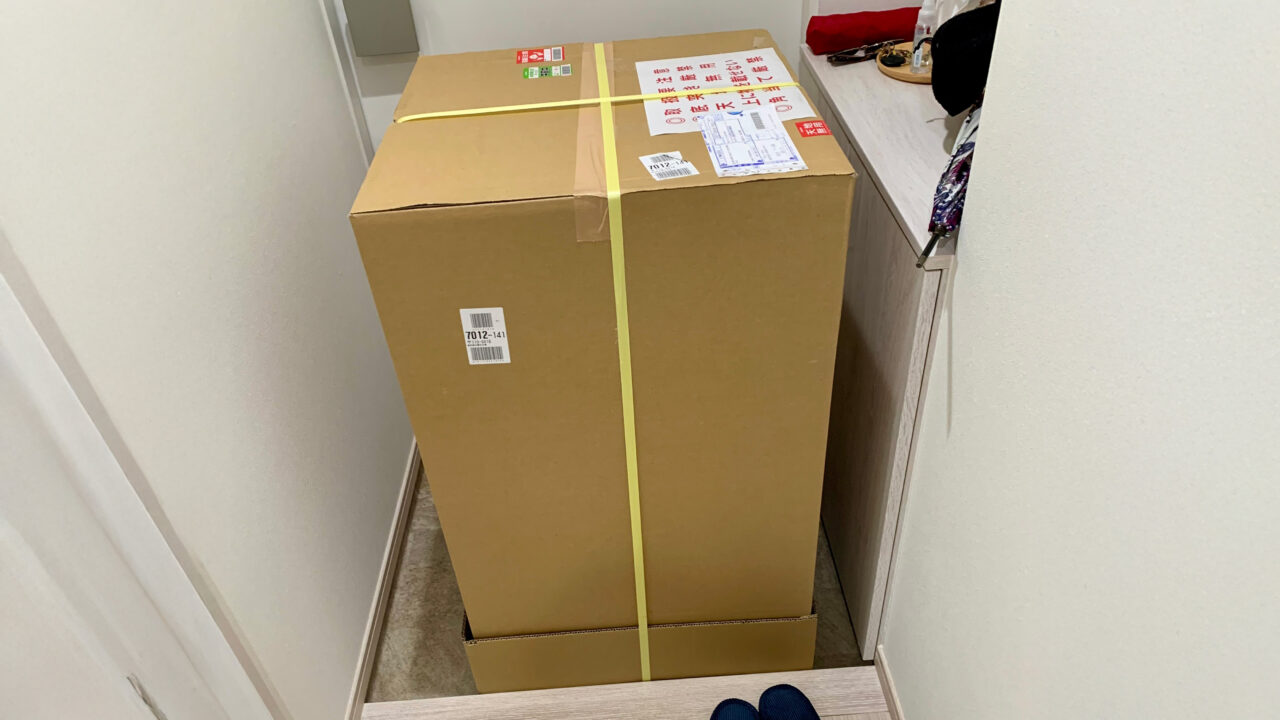
And That’s a Wrap
Well, there you have it! Are you ready to get all the appliances you need? Whether you want new or used, big or small, I’m sure you’ll have tons of fun and adventures getting your new Japanese home ready. Good luck and happy hunting!
